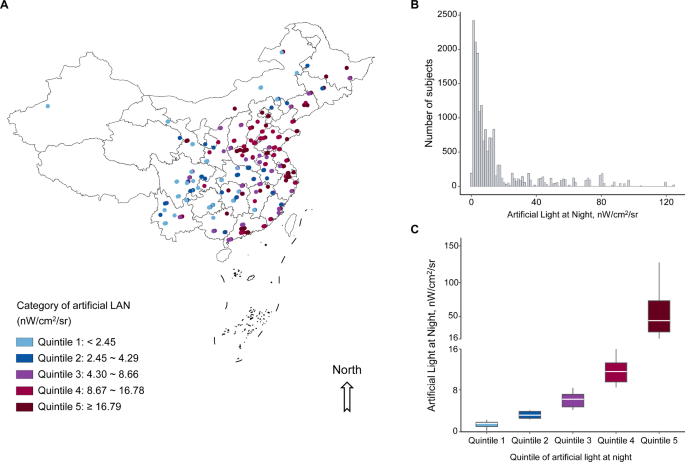Abstract
Previous studies have reported that a potential association between exposure to outdoor light at night (LAN) and diseases. However, there is no evidence regarding the impacts of outdoor LAN exposure on lipid metabolism in humans. This study aims to evaluate the associations between outdoor LAN exposure and the prevalence of dyslipidemia, using a nationwide sample of 10,894 adults aged ≥ 45 years from 150 investigated sites across China in 2011–2012. Outdoor LAN exposure was assessed by using satellite imaging data. The prevalence ratio (PR) was calculated. The present study found that a per-quintile LAN exposure was positively associated with the prevalence of high LDL-cholesterol (PR = 1.10, 95% CI = 1.04–1.16), high triglyceride (PR = 1.07, 95% CI = 1.03–1.12), low HDL-cholesterol (PR = 1.11, 95% CI = 1.08–1.16), and dyslipidemia (PR = 1.06, 95% CI = 1.03–1.09). The fifth quintile of LAN exposure was associated with a significantly increased prevalence of dyslipidemia (PR = 1.20, 95% CI = 1.07–1.35) compared with the first quintile of exposure. Long-term exposure to outdoor LAN was positively associated with dyslipidemia prevalence. Public policies aimed at reducing light pollution at night, guided by the spatial distribution patterns, could lessen the adverse effects.



If you read the paper, they’re building on existing work that shows night-time light affects the metabolism